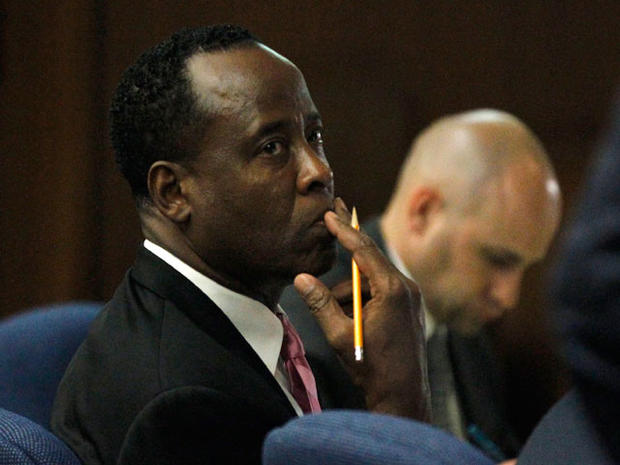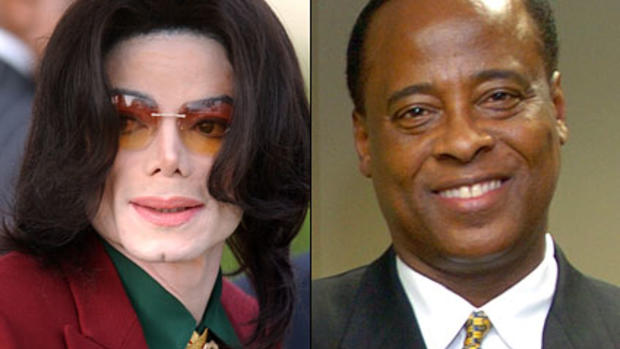Jury hears police interview with Conrad Murray, Michael Jackson's doctor
(CBS/AP) LOS ANGELES - Jurors hearing the involuntary manslaughter case against Michael Jackson's doctor Conrad Murray on Friday heard him describe his relationship with the singer in detail for the first time.
Pictures: Who's who in the trial of Dr. Conrad Murray
Pictures: Michael Jackson's Doctor Trial
Video: Dr. Conrad Murray manslaughter trial begins
Prosecutors began playing a recording of Murray's interview with police detectives two days after Jackson's death in June 2009.
After giving some biographical details, the cardiologist is heard telling detectives how he met Jackson and became his personal physician for a series of planned comeback concerts in London.
Murray tells the detectives that he first treated Jackson in 2006 in Las Vegas because the singer and his children were suffering from the flu.
A judge recessed proceedings for lunch just as Murray finishes explaining how Jackson's personal assistant contacted him because the singer wanted him to accompany him to the London shows.
The recording has never been played in public before, nor have its exact contents been released.
During the interview, Murray details his treatment of Jackson in the hours before the singer's death, including his administration of the anesthetic propofol.
Murray has pleaded not guilty to involuntary manslaughter. If convicted, he faces up to four years behind bars and the loss of his medical license.
Authorities claim Murray gave Jackson a lethal dose of propofol and other sedatives while trying to help the singer get some sleep.
Defense attorneys say Jackson gave himself the lethal dose after Murray left the room.
Murray, who was accompanied by an attorney during the police interview, told detectives that he had been trying to wean Jackson off propofol because he was afraid he was addicted.
He told the police he had given the singer other sedatives, including lorazepam and midazolam, in the hours before Jackson's death, but that the singer couldn't fall asleep.
Detectives wrote that Murray told them he had only left Jackson alone for a couple minutes when he returned around 11 a.m. on June 25, 2009 to find the singer had stopped breathing.
Murray's attorneys have disputed the police description of the timeline and say the doctor returned to find Jackson unresponsive around noon.
In the interview, Murray also told detectives that other doctors had given Jackson propofol as a sleep aid in the past. The singer called it his "milk," according to descriptions of the interview included in search warrant affidavits.
Complete coverage of the Michael Jackson - Dr. Conrad Murray case on CBS News
